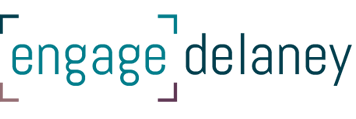Being a Stakeholder
I am usually on the other side of an engagement – the facilitator working to support the sponsor organization. Recently, I’ve been cast in the role of stakeholder and… well, it’s been a real wake-up call. In a nutshell, it sucks being a stakeholder – particularly when organizations/project proponents don’t see you as one!
At my home, there’s a new development beside me and across from me. There has been no pre-consultation – just an application, a hearing and the standard process. If I want to get involved, it is certainly not at a co-design level, but rather at the level of advocating for more parking, more street scape, fewer stories, etc. To be clear: This is right across the street from me, will result in years of construction, and will block out the sun completely. It’s a major project, and in six weeks I can attend an information meeting and provide a comment online.
At my cottage (I’m still an Easterner, I suppose, because I cannot write “cabin”), a massive clearing of trees and vegetation has taken place on the private land behind my property. It is agriculturally-protected land; however, the purpose of the clearing is to support logistics for a music festival. Well, that’s what myself and some others think, but actually, I have no confirmation because no one has contacted me or provided any information – except a link to a bylaw saying I don’t need to be informed! My neighbours and I have come together to compile information and sort through hearsay, rumours and facts.
In both instances, I am directly, negatively impacted and I have to jump into a process… or at least try to understand it.
Professionally, we always counsel our clients about building values-based engagements and engaging early and often. This builds common ground that then sets the stage for dialogue. In both of these cases, at home and at the cottage, there has been no early engagement, or even communication. The result is that now I don’t want dialogue. I want to “fight” for my interests in these projects that are happening to me. I feel defensive, angry – even outraged – and reactive.
As a stakeholder, I have experienced:
- A sense that I have no control over the situation
- Thoughts that things are moving forward quickly and I have to “fight”
- Being at a disadvantage because of a lack of time and poor access to information
The other thing that I have reflected on is that trust in decision-making institutions is low and that the absence of information (even if the sponsor organization doesn’t have it, but it is perceived to have it) makes stakeholders assume the worst. This further reinforces a sense of conflict.
So, as a stakeholder, I have tried to:
1. Understand the approval process
2. Identify the staff point-people and elected decision-makers
3. Communicate my concerns and my belief in my position as a stakeholder
4. Collaborate with my neighbours
As I try to step back from these projects and reflect on how I feel as a stakeholder, I am more committed than ever as an engagement professional to engage early and often. I am more committed than ever to identify ways to make engagement easy and accessible for stakeholders, especially those who are not aware of regulatory processes (most of us!), and to identify ways for the public to be part of a project instead of the opposition.


